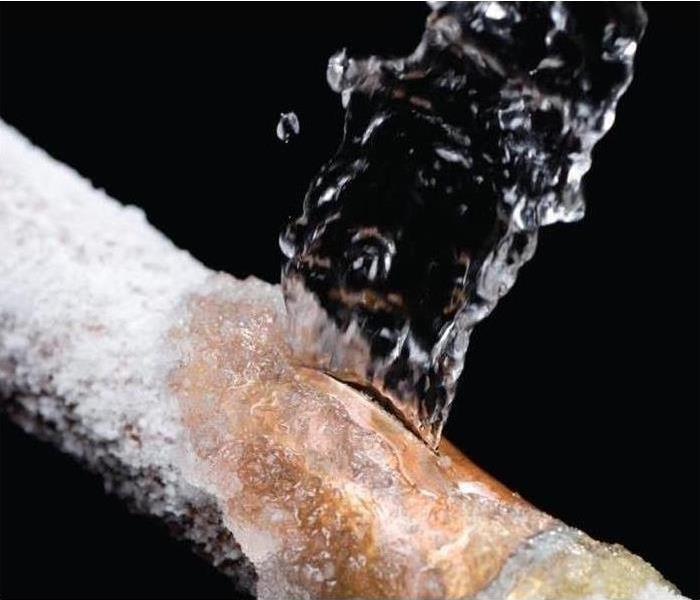Frozen Pipes? Call the SERVPRO of Edmonds Team!
1/29/2019 (Permalink)
Severe winter weather ranks third as a cause of insured catastrophic losses, after hurricanes and tornadoes, according to the Insurance Information Institute. Losses from snow, ice, and freezing temperatures across the United States average about $1.2 billion a year, according to the New York Times.
Preparing your home for cold weather can help avoid potentially costly problems, like frozen pipes. When water freezes it expands. That's why a can of soda explodes if you put it into a freezer to chill quickly and forget it. When water freezes in a pipe, it expands the same way. If the water expands enough, the pipe bursts, water escapes, and major damage can begin.
Preventing Frozen Pipes
So what can you do to avoid frozen pipes? First, make sure your heating system is working properly and that vulnerable pipes, like those that run close to your exterior walls, are insulated.
If you go away for several days in the winter, make sure you leave the heat on. The Insurance Information Institute recommends setting your thermostat at 65 degrees.
Have someone check your home and property, if you can. If you expect to be away for extended periods - say, you go South for the winter - have your water turned off.
Other actions you can take to help prevent your pipes from freezing are:
- Seal air leaks surrounding or near your pipes
- Keep your garage doors closed if you have water supply lines in the garage.
- Disconnect all outdoor hoses and turn off water to exterior faucets and sprinkler systems.
- Open your kitchen and bathroom cabinet doors to allow warmer air to circulate around the plumbing.
- Keep your heat at a minimum of 55 degrees at all times. Keep it at 65 when you're out of town.
- During severe cold turn on both hot and cold faucets near outside walls to allow a small trickle of water to run during the night.
- Remove your outside hoses and store them inside during the winter.
- If you need to be away from home, consider draining your water system before you go.
- Identify the locations of shut-off valves so that you're prepared to stop the flow of water as soon as possible when a pipe bursts.
If a pipe bursts:
- Shut off water at the main valve. Your shut-off should be easily marked with a tag. Call SERVPRO of Edmonds if you would like one.
- If the break is in a hot water pipe, the valve on top of the water heater should be closed.
- Call a professional restoration expert such as SERVPRO of Edmonds to mitigate the damage. Keep an emergency number nearby for quick access!
Call us anytime at 425-775-5723.




 24/7 Emergency Service
24/7 Emergency Service
